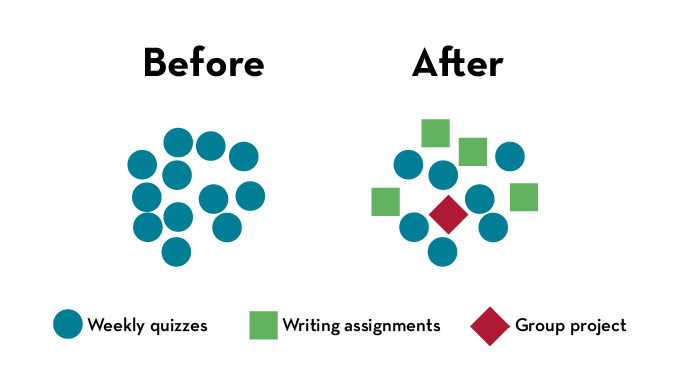“Effective assessment is more like a scrapbook of mementos and pictures rather than a single snapshot.”
-Wiggins & McTighe, 2005, p 152
Use more than one assessment type to provide students with different opportunities to demonstrate their knowledge. Variability in students’ cultural, linguistic, and disciplinary backgrounds affect their performance on and motivation for different assessment types. For example, what may be an easy task for a native English speaker could contain barriers for a non-native English speaker. Thus, providing varied forms of assessment helps level the playing field for all students.
Universal Design for Learning is an educational framework to guide the design of learning aims, assessments, materials, and methods keeping a diversity of learners in mind. This approach recommends that assessments provide multiple means of engagement, action, expression, and representation for students.
Web resource: UDL and assessment (Universal Design for Learning in Higher Education)
Example
Rather than base the final grade on quiz performance alone, the assessment plan could include writing assignments and a group project.
